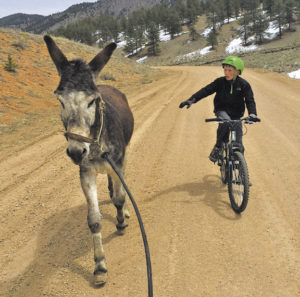By Martha Quillen
According to those in the know, America has lost it. But what have we lost? Donald Trump says it’s our greatness, because the way he sees it, our nation isn’t feared nor revered anymore, whereas others claim we’ve lost our mojo, which generally refers to our gumption and can-do attitude. Many agree we’ve lost our minds, and others think we’ve lost our soul. And scads of commentators believe America has lost either its moral compass, or moral standing, or morals altogether.And me? I think we’ve lost old-fashioned journalism. In our era of email, Facebook, Twitter, YouTube, live-streaming, texting, FOX, MSNBC, cells, pads and personal computers, information comes at you from every direction, which makes it hard to determine what to believe or pay attention to.
New methods of communication are changing the way we live, think and relate, and this ongoing transformation likely contributes to our feeling that we’ve lost something. But I’m not convinced that old-fashioned journalism is something we should restore.
In August, Gene Gibbons, a former White House correspondent who reported on the Nixon, Ford, Carter, Reagan, Bush and Clinton administrations, gave a presentation at Franklin Pierce University, in which he stressed the importance of old-fashioned, impartial, facts-driven journalism.
And yes, journalists were expected to be more cautious and circumspect in Gibbon’s day – and to seek out multiple official sources when reporting on events. But the news wasn’t always more factual. Many papers preferred flattering reports about America’s politicians, corporations and war efforts, and they ignored scandal.
Gibbons’ speech was aired on C-Span right before a talk by Thomas Blanton, the National Security Archive Director at George Washington University. Blanton spoke in honor of the 50th anniversary of the Freedom of Information Act, and was unquestionably partial. He enthusiastically pointed out how the water fiasco in Flint, Michigan, was finally addressed due to incriminating government emails. Then he detailed other cases and concluded that Americans need more access to government information, which is something some countries already have.
To highlight why public records should be made more available, Blanton cited the case of 43 missing students in Mexico. At first, it was thought to be the work of cartels, but further investigation showed that the local police were involved. The parents, however, still weren’t satisfied and demanded to see secret federal records. That recourse would not have been available in our country, but in Mexico and various other nations, a designated arbitration board can overrule federal authorities, and the records consequently made available showed that federal agents of Mexico were involved in the students’ disappearance.
Blanton is sold on maximum transparency, but I have trouble imagining such a thing. Recently, several people have told me about their dream that someday soon all public agencies – including libraries, police and fire departments – will have to post all of their bills, expenses, proposals, purchases, budgets, board meeting minutes and film footage online, in a raw, unedited form, so that citizens won’t even have to ask for information.
That idea makes me imagine years of public dysfunction in which clerks will be too busy addressing questions and complaints about spending and procedure to get anything else done.
Yet maximizing transparency might actually ease the citizens’ suspicions, rendering them less likely to suspect corruption where it doesn’t exist – and making authorities less able to deny and lie about criminal behavior when it’s revealed.
Maybe transparency is, as Blanton clearly believes, a wondrous thing, ensuring justice and discouraging malfeasance. Or maybe it’s just another way to bash and harass one another. And that’s the crux of the matter, because our tempers are what we keep losing again and again, and once resentments are unleashed, they tend to proliferate and spread faster than cold germs.
And so it was when the topic of reconciliation was introduced in Salida.
[InContentAdTwo] In a recent High Country News article, Susan Tweit, a local writer and naturalist, shared her ideas about how techniques used in “reconciliation ecology” could be employed to “heal” political problems. It was an interesting notion, but Tweit’s description of Salida’s situation blamed all of the local political damage on one political faction – the slightly larger faction which had recently triumphed at the polls over the faction Tweit apparently prefers.
Tweit wrote that an “anti-growth faction” had “taken control of the city council” effectively firing the city administrator and also firing the city attorney and hiring a new one, and the “city’s highly regarded finance director quit, citing harassment,” and “other city employees also say they’ve been harassed at work and at home by supporters of the anti-growth faction.”
Tweit, however, failed to mention that the harassment in Salida comes from both sides, or that the new city attorney and his wife and children had been assailed in Riverside Park by a woman who was charged with harassment involving “obscene gestures or language.”
In response to Tweit’s article, Hal Brown, a Salida councilman, took offense and wrote an editorial for The Mountain Mail. Brown’s piece included a quote by “Ed and Martha Quillen,” written seventeen years ago, that he resurrected to refute Tweit’s contention that her town had been idyllic until recently.
Within hours of the paper’s distribution a friend wanted to know what I was going to do about Brown’s use of my name.
“Nothing,” I answered, because I didn’t even plan on reading the editorial page that day. In an attempt to retain some semblance of perspective, I usually put off reading local letters and editorials until I can absorb the punches and counter-punches in bunches, and have time to compare, contrast and root out more facts (which doesn’t necessarily help me ferret out the truth, but it’s an old habit, acquired when I worked for newspapers).
Journalism is not what it used to be; it’s not impartial, nor still being vetted. Now it’s instant and coming from a million sources: cell phones, eyewitnesses, people under siege, enemy combatants, hackers, whistleblowers….
Today, nothing is safe, secure, or secret, including your Social Security number and sexual escapades. But instead of having more reliable information, what we have are countless conflicting accounts about nearly everything. And so it was with Tweit and Brown. And both of them led their editorials with an insult, which is also typical in modern commentary.
Brown began his by accusing Tweit of “besmirching” Salida with “misinformation” and wrote that she’d “descended into the lowest form of political discourse.”
I know Susan Tweit and am a great admirer of her blog, which is exceptionally readable and thought-provoking. I don’t know Hal Brown very well, but am acquainted with his wife, who always summons a smile and kind words when I greet her – despite the fact that she’s as much a target of community harassment as anyone.
I’m not sure why Congress, candidates and even citizens are so inclined to attack, but I figure it’s a stage. Modern information is less filtered, controlled and standardized. There’s so much of it that hardly anyone agrees on anything anymore, and that’s maddening.
But I don’t think we should go back to old-fashioned journalism. No way. In days gone by, journalists cloaked their contempt, anger and partiality in euphemistic accusations: Women should know their place. Blacks should be a credit to their race. Poor whites are mentally defective.
Now politicians and journalists may be too insulting and quick to criticize, but at least they’re not pretending to be impartial or polite.
Quillen lives in Chaffee County, where one can still escape the maddening mystique of modern media by communing with nature.




